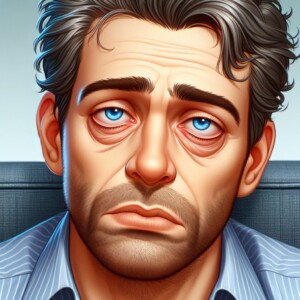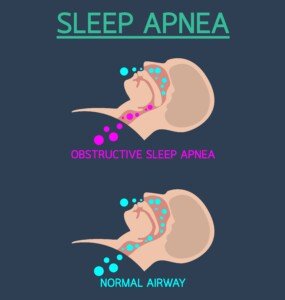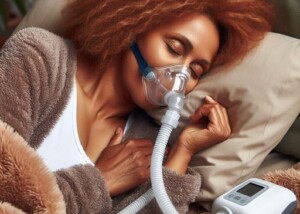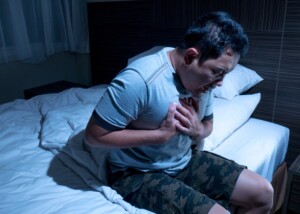
CPAP therapy for sleep apnea should not be making you feel even more tired and drained.
“If you’re actually sleeping the majority of the night and feeling MORE tired than you did without the CPAP, chances are that you have developed complex sleep apnea,” explains Joseph Krainin, MD, board certified in sleep medicine and neurology and founder of the online sleep apnea clinic Singular Sleep.
“Complex sleep apnea refers to a few different conditions, but one of them is when patients with obstructive sleep apnea ‘flip’ to central sleep apnea after initiation of positive airway pressure,” continues Dr. Krainin.
“A sleep apnea test on PAP is required to diagnose this issue.”
What causes the “flip” to central sleep apnea?
First off, if there’s too many central events throughout your sleep, even if your airway is maintained wide open, this can result in feeling bogged down the following day.
A central apnea is when a disconnect between the brain’s signaling system and the respiratory muscles causes you to cease breathing.
So if your airway is nice and wide due to CPAP, it’s as good as being collapsed if you’re not breathing!
Many central events will cause many associated brain arousals — depriving you of restorative sleep.
When the flip occurs, this may be referred to as treatment-emergent central apnea.
According to studies, it occurs in about 10 percent of CPAP users.

Shutterstock/iLoveCoffeeDesign
But there’s good news for the vast majority of this 10 percent:
These treatment-emergent centrals will resolve within several months on their own while continuing CPAP therapy.
Don’t let any of this make you think that CPAP machines cause central sleep apnea.
In fact, it’s not clear just what causes that flipped switch when everything else seems to be working smoothly as far as the CPAP therapy.
But there is a theory.
When CPAP corrects the issue of a collapsed airway, this removes a burden from the respiratory system.
This leads to lower than normal levels of carbon dioxide in the blood, which may trigger a cessation of breathing.
So it’s no wonder that, for a small percentage of patients, they end up feeling as tired with CPAP as they did before the treatment, or in some cases even sleepier despite compliant CPAP use.
Another Reason for Still Feeling Sleepy Despite CPAP Use
If the mask doesn’t fit right and just feels uncomfortable, or if it’s irritating the skin, this will disturb one’s sleep. Mask leaks, too, will disrupt sleep.
Sleep fragmentation results, and this ups the occurrence of what are known as transitional central apneas.
If your mask is giving you trouble, you will be repeatedly awakened to consciousness.
You’ll then transition back into sleep. Here is where you may experience the central events as you enter back into slumber – enough to rob you of the restorative deep sleep that you need.
You may also have arousals below the conscious level as you fitfully cope with the troublesome mask. Subconscious arousals prevent fully restorative sleep.
So even though your airway remains open due to the CPAP, you’re just not refreshed upon waking up and feel tired throughout the day.
Solutions
• As mentioned, treatment-emergent central apnea resolves on its own for most patients.
• About two percent of these patients do not have resolution. To date there is no firmly established protocol for correcting non-resolving TECAs.
• Work with your provider until you find a mask that’s comfortable enough to tolerate well.
• Work to resolve leakage issues.

 In 2013
In 2013 







































